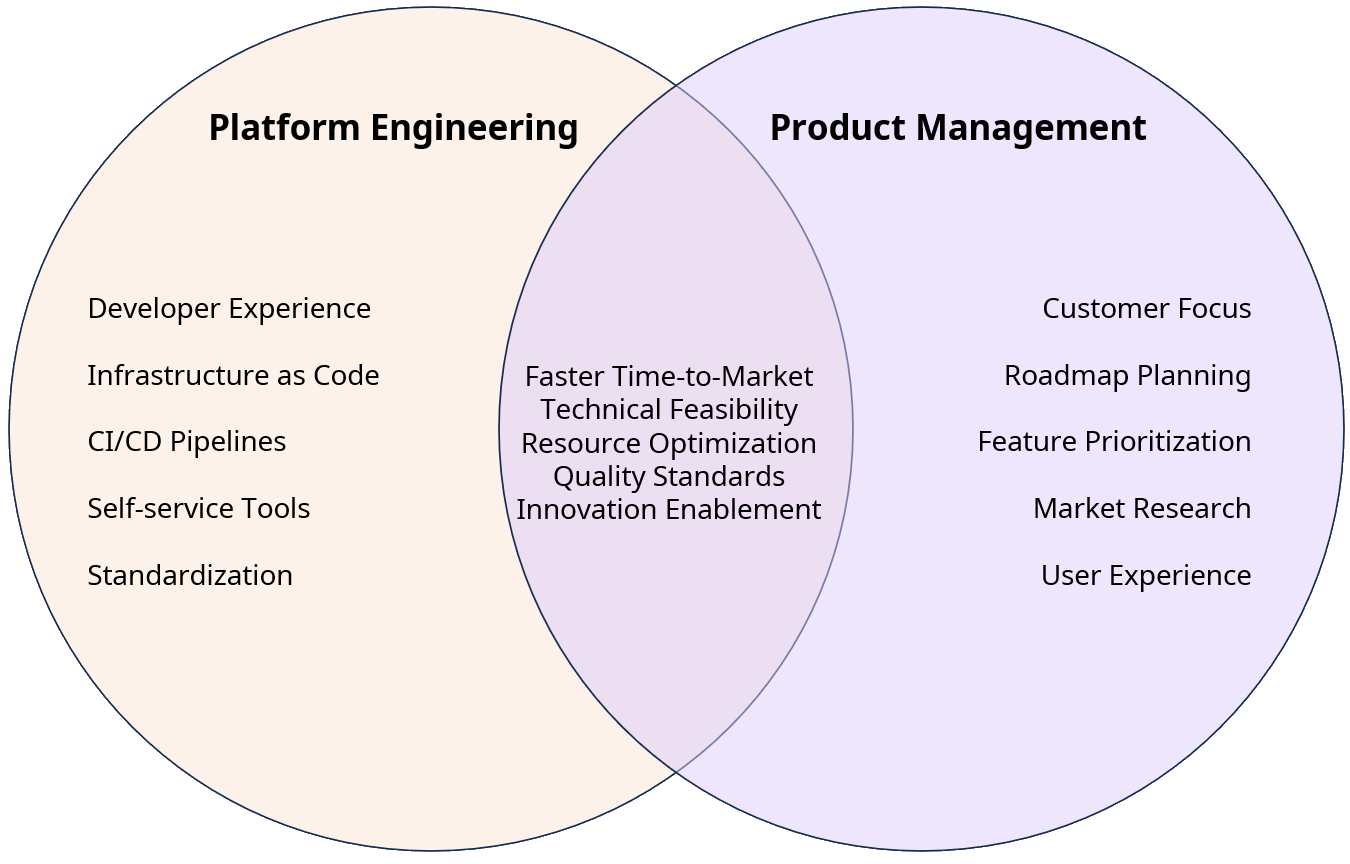Rise of Platform Engineering in Product Management
How Internal Developer Platforms Are Transforming Product Teams. Modern product teams are leveraging platform engineering to boost productivity.

The New Backbone of Product Innovation
Platform engineering has emerged as a critical component of modern product management strategy. As Gartner predicts, “by 2026, about 80% of software engineering organizations will establish platform teams as internal providers of reusable services, components, and tools for application delivery.” This shift represents a fundamental change in how product teams approach development and delivery.
For product managers, particularly those working with technical products, understanding this trend is no longer optional—it’s essential for staying competitive. Understanding how the underlying platforms and components (the “lego blocks”) fit together is vital and unlocks teams that can build better, faster, more reliable components at scale.
What Is Platform Engineering?
Platform engineering creates internal developer platforms that provide self-service capabilities for software development teams. These platforms consolidate tools, automation, and best practices into cohesive, user-friendly interfaces that development teams can leverage without constantly reinventing the wheel.
The goal? Reduce cognitive load on developers, standardize workflows, and accelerate the delivery of business value.
Why Product Managers Should Care
As a product manager, you might wonder why a seemingly engineering-focused initiative matters to your role. The answer lies in how platform engineering transforms product development:
- Accelerated Time-to-Market: Platform engineering removes development bottlenecks, allowing your team to ship features faster
- Improved Developer Experience: When your engineering teams are empowered with the right tools, they focus more on building and less on configuration
- Consistent Quality: Standardized platforms enforce best practices across all development efforts
- Enhanced Collaboration: Common tooling and interfaces bridge the gap between product and engineering teams
The Product-Platform Intersection
According to HCLTech, 2024 will see a stronger trend toward “composable platforms” that offer flexible, modular architectures. This shift enables product teams to quickly adapt to changing market demands, fostering agility and scalability.
For product managers, this means an opportunity to rethink product strategy. Rather than managing isolated features, consider how your product roadmap aligns with and leverages your organization’s platform capabilities.
Getting Started: Platform-Aware Product Management
To embrace this trend as a product manager:
- Foster Cross-Functional Understanding: Invest time to understand your organization’s platform engineering initiatives
- Map Dependencies: Identify how your product roadmap intersects with and depends on platform capabilities
- Advocate for Product Needs: Ensure the platform team understands your product requirements and roadmap
- Measure Impact: Track how platform engineering initiatives affect your product development velocity and quality
Looking Ahead
As DevOps.com notes, platform engineering “is anticipated to gain significant momentum in 2024 as it offers crucial advantages in accelerating business value, reducing cognitive loads and enhancing the efficiency of application development.”
Another significant shift is the evolution of funding models. According to KORE1, “2024 will be the year organizations widely adopt platform engineering as an essential progression from DevOps,” with a move toward “product-centric funding models, which recognize the need for sustained investment in platform engineering.” This approach treats platforms as ongoing products requiring continuous development and support, not one-time projects.
The most successful product managers will be those who can bridge the gap between product vision and platform capabilities, creating a seamless experience for both developers and customers.
In an era of rapid digital transformation, platform engineering isn’t just changing how we build products—it’s changing how we think about product management itself.









